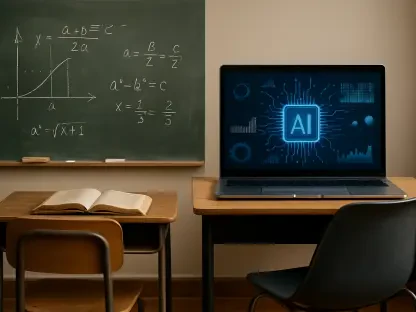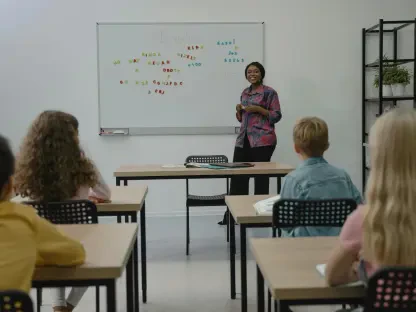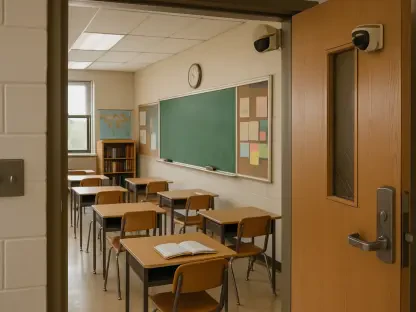The Houston Independent School District (HISD) has seen a series of controversial changes, particularly the closure of school libraries under the new state-appointed superintendent, Mike Miles. This initiative has resulted in significant backlash from teachers, parents, and local politicians, raising fundamental questions about its impact on student education. These closures are part of broader efforts to transform educational practices within HISD through the New Education System (NES), a model that aims to standardize teaching and improve academic outcomes across the district. However, the ethical implications and long-term consequences of this strategy remain hotly debated.
The Catalyst for Change: State Takeover and Appointment of Superintendent Mike Miles
In response to persistent underperformance, particularly at Wheatley High School, the Texas Education Agency (TEA) took control of HISD. This drastic move aimed at improving academic outcomes led to the appointment of Mike Miles as superintendent in June 2023. Known for his aggressive reform strategies, Miles introduced the New Education System (NES) to standardize teaching methodologies and bolster test scores throughout the district. HISD had faced repeated failing grades for several schools, and the state intervention was seen as a last-ditch effort to steer the district towards better performance.
Under NES, twenty-eight school libraries have been repurposed into “team centers.” This decision aligns with Miles’ vision of creating isolated environments for disruptive students and advanced workspaces for high achievers, focusing on academic performance and classroom management. While the concept ostensibly aims to provide tailored educational experiences by addressing behavioral issues separately and promoting advanced learning, it has sparked widespread debate. Critics argue that this shift not only undermines the traditional role of libraries but also raises ethical concerns about equity and access to educational resources.
Transformation of Libraries: From Hubs of Learning to Team Centers
Libraries, once the heart of many schools, accommodating diverse learning needs and promoting literacy, are now being transformed. Schools such as Wheatley High have seen these quiet sanctuaries turned into spaces aimed at discipline and advanced independent learning. This model is intended to keep disruptive students isolated, allowing others to concentrate on their studies. For high-achieving students, the repurposed spaces are intended to provide areas where they can work on advanced material independently, presumably enhancing their academic performance.
While the concept appears practical in addressing individual student behavior and learning pace, it has drawn substantial criticism. Opponents argue that the removal of traditional libraries deprives students, especially those from economically disadvantaged backgrounds, of crucial resources. Libraries often serve as places of refuge and inspiration, fostering a love for reading and learning. The transformation diminishes the opportunities for students to engage with books, explore their interests, and develop critical thinking skills. These are experiences that many believe are indispensable for a well-rounded education and personal growth.
Impact on Librarians and Educators
The directive to convert libraries has had a direct impact on school staff. Librarians like Brandie Dowda and Cheryl Hensley have lost their positions due to library closures. These educators have been vocal about their concerns, highlighting that the absence of a library diminishes students’ literary access and overall educational experience. The libraries were not only resource hubs but also spaces where students could receive guidance in research, develop a passion for reading, and find solace in the midst of their busy school lives.
Moreover, teachers working under the NES, such as Melissa Yarborough, have expressed dissatisfaction with the enforced curriculum and rigid teaching methodologies. The mandated approach limits creative instructional strategies, leading some teachers to resign from the district. Experienced educators argue that the loss of flexibility to tailor their teaching to the unique needs of their students stifles innovation and passion in the classroom. This rigidity, they fear, could lead to a more rote and less engaging educational experience for students, counteracting any potential benefits in standardized test performance.
Community and Parental Backlash
The transformation of libraries has led to significant backlash from the community, particularly among parents and local politicians. Many believe that this move disproportionately affects schools in lower-income, predominantly Black and Latino neighborhoods, heightening educational inequities. The areas targeted for the NES and library conversions often belong to communities that already face numerous challenges, and the removal of a vital educational resource like a library feels like an additional blow.
Protests have been organized to voice these concerns, illustrating the importance of libraries in fostering a sense of community, safety, and academic curiosity. Parents argue that without libraries, children lose access to diverse literary genres and resources that are critical to their development. Moreover, the communal sentiment suggests that the closures serve to marginalize rather than uplift already struggling communities. Libraries are seen not just as buildings filled with books, but as integral parts of the educational and social fabric, offering students a place for exploration, learning, and growth.
Broader Educational Implications
The Houston Independent School District (HISD) has recently undergone a wave of controversial changes, most notably the closure of school libraries, a decision implemented by the newly appointed state superintendent, Mike Miles. This move has ignited significant backlash from teachers, parents, and local politicians, all of whom question how it will impact student education. These library closures are part of a larger initiative aimed at transforming educational practices within HISD through the New Education System (NES). The NES is designed to standardize teaching methods and improve academic outcomes across the district. However, the strategy has spurred intense debate about its ethical implications and long-term effects. Critics argue that eliminating libraries could restrict students’ access to essential learning resources and limit their opportunities for independent learning and critical thinking. Supporters, on the other hand, believe that the changes are necessary to bring about much-needed improvements in educational standards and student performance. The community remains deeply divided as the district pushes forward with these reforms, leaving many to wonder whether the potential benefits will outweigh the costs.









